Politics
The Pandemic, The Economy, and The Presidential Race
March 20, 2020Note from the Editor: In early February, I asked one of our regular journalists, Paul Sweeney, to look into the economy and the presidential race to size up the coming election season. As he was wrapping up his interviews over the span of a month, things took a startling turn, and COVID-19 came to the forefront and changed everything. This story is an amalgamation of reporting that started one way and quickly morphed into another. In light of how fast the situation is changing, we are publishing it now rather than waiting until early April to release it in print.
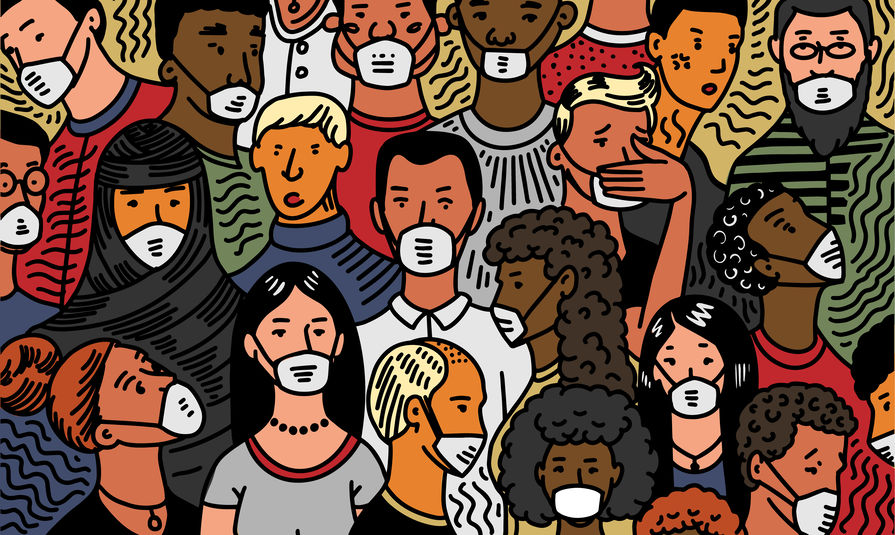
Chris Hurn, who heads an Orlando-area financial firm in Florida that specializes in small business lending, says he is witnessing fear and desperation among business owners whose stores, shops and enterprises have been thrown into a tailspin by the coronavirus pandemic.
“We’ve been overwhelmed with telephone calls and e-mails,” says Hurn, chief executive at Fountainhead Commercial Capital, a non-bank Small Business Administration lender which boasts more than $250 million in originations last year. “I’ve fielded over 300 inquiries from borrowers about these loans in just the last few days,” he added. “People are telling me that they’re being harmed and don’t know how they’ll make payroll. The SBA needs to act.”
What Hurn is experiencing in Florida is not just an isolated incident. Thousands of small businesses are under siege nationwide as Americans’ have gone into isolation in response to the pandemic, helping precipitate a full-blown economic crisis. As of March 17, the coronavirus – also known as Covid-19 – had leapfrogged across the globe since appearing in China in December, 2019, infecting people in 100 countries. There are now some 272,000 confirmed Covid-19 cases worldwide and close to 11,300 deaths, according to data compiled by scientists at Johns Hopkins University in Baltimore.
In the U.S., the number of cases has cleared 19,000 as of March 20, the death toll has climbed above 230, and coronavirus cases have been recorded in all 50 states. The Center for Disease Control reports that the number of cases are growing at 25-30% per day. But experts warn that, because of a lack of testing, the actual number of cases is certainly higher.
 The outbreak is drawing comparisons to the worldwide influenza pandemic of 1918. Popularly known as the “Spanish Flu,” that virus may have claimed as many as 100 million lives, according to estimates by the World Health Organization. Medical officials say that persons 70 and older and those with underlying medical conditions, such as a weakened immune system, are most at risk in the current pandemic.
The outbreak is drawing comparisons to the worldwide influenza pandemic of 1918. Popularly known as the “Spanish Flu,” that virus may have claimed as many as 100 million lives, according to estimates by the World Health Organization. Medical officials say that persons 70 and older and those with underlying medical conditions, such as a weakened immune system, are most at risk in the current pandemic.
“What makes this disease so lethal,” says Rachel Scott, a family physician in Austin, Texas and the author of “Muscle and Blood,” a pathbreaking study of occupational diseases, “is that people in the vulnerable population who come down with the virus are prone to contract severe acute respiratory distress syndrome. In ARDS, the virus destroys the sacs in the lungs, preventing oxygen from being delivered into the blood stream. By the time people with severe ARDS are hospitalized and treated with a ventilator, it may already be too late.”
To blunt the accelerated pace of contagion, governors and mayors are putting restrictions on citizens by curbing gatherings and monitoring interactions. Governors in 44 states have forced restaurants and bars to close shop in an unprecedented regulation of U.S. citizens. Meanwhile, millions of Americans self-quarantined and self-isolated and re-examined how they interact socially, commercially and professionally. Increasingly draconian controls to moderate the trajectory of the outbreak are not only turning cityscapes into ghost towns from coast-to-coast but throwing a giant monkey wrench into the U.S. economy.
Treasury Secretary Steven Mnuchin has reportedly warned Congressional leaders that the unemployment rate could spike to 20%.
Former Labor Secretary Robert Reich has gone Mnuchin one better amid reports that 1.2 Americans had filed for unemployment insurance. In an interview on MSNBC Thursday, Reich said he feared that the unemployment rate is likely to hit that 20% mark in the next two weeks. “Eighty percent of Americans are living paycheck to paycheck,” he declared ominously. “We’re in a national emergency.”
The pandemic and the ensuing economic crisis is also casting a giant shadow over the 2020 presidential election. “It’s a black swan event that wasn’t anticipated by any of the candidates, and the reverberations for the election are going to be huge,” said Richard Murray, a political scientist and elections expert at the University of Houston.
For the past 50 years, political analysts have generally agreed, the condition of the U.S. economy was a key predictor – if not the key predictor – to the outcome of presidential elections. President Jimmy Carter, for example, had the bad fortune to preside over a problematic economy marked by oil-price shocks and energy shortages, mile-long queues at gasoline stations, and sky-high interest rates. There was even a new word — “stagflation” – coined for the phenomenon of stagnant growth and runaway inflation, recalls David Prindle, a government professor and expert on voting behavior at the University of Texas at Austin.
There were, of course, additional negative complications to Carter’s presidency. Most notable was the “Hostage Crisis” in which Iranian students attacked the U.S. Embassy in Teheran in the fall of 1979, held 44 American diplomats and aides captive for more than a year, and made Carter look hapless and helpless. Nonetheless, Ronald Reagan, a former governor of California and longtime matinee idol, hammered Carter mercilessly on the economy, demanding: “Are you better off than you were four years ago?”
Answering that question sent Carter packing to his Georgia peanut business. “In 1980, as in every election, there were multiple causes,” says Prindle, “but the deciding factor was the economy.”
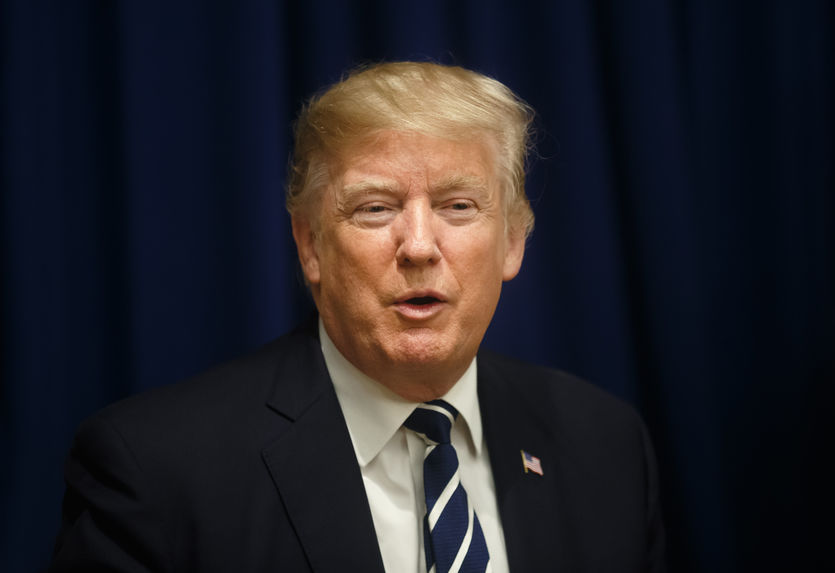 A healthy economy can serve as a mighty bulwark against opponents in a president’s bid for a second term. In the mid-1990s, an expanding economy and relentlessly buoyant stock prices – a Dow Jones Industrial Average so robust in the mid-1990’s that Federal Reserve chairman Alan Greenspan famously admonished investors for their “irrational exuberance” – allowed Bill Clinton to sail to re-election. (The good times also buffered Clinton during the ensuing sex scandal involving White House intern Monica Lewinsky.)
A healthy economy can serve as a mighty bulwark against opponents in a president’s bid for a second term. In the mid-1990s, an expanding economy and relentlessly buoyant stock prices – a Dow Jones Industrial Average so robust in the mid-1990’s that Federal Reserve chairman Alan Greenspan famously admonished investors for their “irrational exuberance” – allowed Bill Clinton to sail to re-election. (The good times also buffered Clinton during the ensuing sex scandal involving White House intern Monica Lewinsky.)
As the election year of 2020 dawned, a decently performing economy seemed to be serving President Donald Trump’s cause. Before the World Health Organization declared the coronavirus outbreak a pandemic in early March, the U.S. economy was coming off 10 full years of job growth and the unemployment rate had sunk to 3.5 percent, its lowest level in 50 years. Wages were also rising by nearly 4 percent per annum, noted Aparna Mathur, a labor economist at the business-backed American Enterprise Institute in Washington, D.C. “The economy is not spectacular,” she said, “but everything is moving in the right direction.”
Since then, however, the economy has been slammed as an alarmed country reacted to the pandemic. The NBA and NHL closed down their basketball and hockey seasons. Major League Baseball called a halt to spring training. The NCAA initially declared that “March Madness” would proceed and that hoopsters would perform before empty arenas, but then it pulled the plug. Even professional golf, an outdoor sport, hung up its cleats, announcing that The Masters, played at Augusta (Ga.) National Golf Course in April and the crown jewel of professional golf, would be postponed indefinitely.
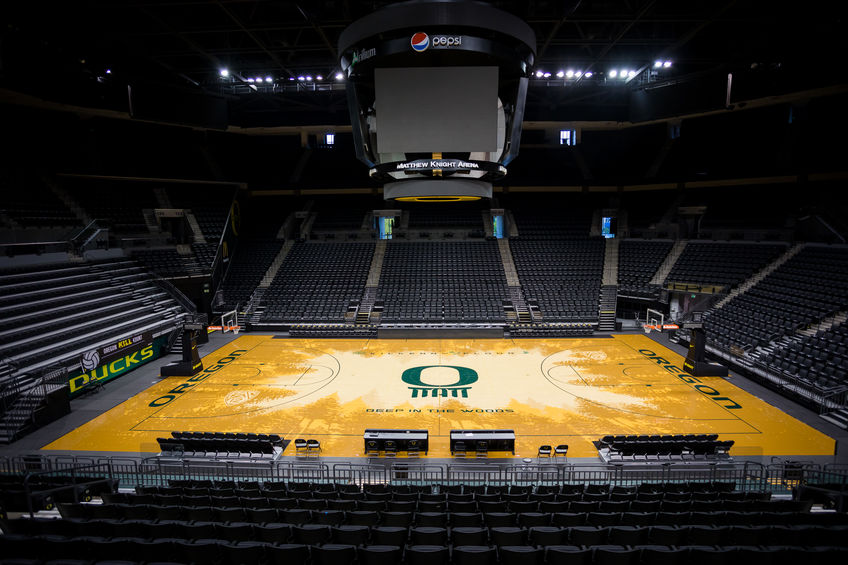 Almost overnight, colleges and universities shut down classrooms, emptied their dorms, and opted for online coursework. Some 33 million schoolchildren in 41 states have ceased attending school. Hundreds of companies, including Amazon and Microsoft in Seattle, a city hit hard by the coronavirus, are requiring their employees to “telecommute” by working at home on their laptops.
Almost overnight, colleges and universities shut down classrooms, emptied their dorms, and opted for online coursework. Some 33 million schoolchildren in 41 states have ceased attending school. Hundreds of companies, including Amazon and Microsoft in Seattle, a city hit hard by the coronavirus, are requiring their employees to “telecommute” by working at home on their laptops.
The CDC at first advised Americans not to cluster in groups of more than 25 people, then cut that figure to 10. Americans are being prodded to engage in “social-distancing” by avoiding shaking hands and separating themselves from others by a separation of three-to-six feet from others. San Francisco has gone still further, grounding cable cars, closing down clubs and bars and restaurants and effectively putting the city on lockdown.
The city of Boston called off its iconic St. Patrick’s Day parade, Broadway theaters dimmed their lights, and Starbucks forbade customers to sit down in its coffee shops. Major events like South by Southwest, the music and cultural festival in Austin, Texas, was canceled, depriving Texas’s capital city of some $350 million in economic activity.
Jilting the festival cuts deeper than the losses to airlines, hotels, bars, restaurants, and music venues, notes Alfred Watkins, a Washington, D.C.-based economist and chairman of the Global Solutions Summit, an international consulting firm. “You have all of these people in Austin who are running events and they’re hiring caterers for sandwiches and refreshments,” he said. “You have independent contractors like videographers and photographers, sound-equipment suppliers, Uber and Lyft drivers, hairstylists, and even freelance entertainment journalists — all of whom are no longer making money. For these entrepreneurs,” he added, “losing this event is a little like retailers missing out on the Christmas season. It’s when they make their money.”
The airline, travel, leisure, and tourism industries are in free-fall. Major cruise lines suspended bookings and cut short voyages after horrific reports of coronavirus outbreaks among passengers trapped at sea, temporarily putting a $38 billion industry in dry dock.
The conventions industry, which has come to a standstill after wholesale cancellations, remains a vastly under-appreciated sector of the U.S. economy, argues George Brennan, former executive vice-president of marketing at Arlington (Va.)-based Interstate Hotels and Resorts, the world’s largest independent hotel management company.
These mass gatherings are an unheralded engine of growth, he says, packing a bigger economic wallop than they get credit for. “Conventions typically draw anywhere from 2,000 to 25,000 people,” he said. “They run 6,000 to 8,000 attendees on average, and most can only be accommodated by the top 10-20 U.S. cities, which include Chicago, San Francisco, Las Vegas, Atlanta, New Orleans and Orlando.
“Conventions are often multi-dimensional,” he added. “Attendees usually spend three to five days in town. They often shop at clothing stores and other retailers. They’ll take in sporting events or, if they’re in New York, a Broadway play. They’ll go to attractions like the San Diego Zoo, or spend an afternoon on a golf course in Florida or California.”
Conventions generate a tremendous amount of commerce and revenues for vendors and exhibitors. As an example, Brennan cites his former employer, the hospitality industry. “At hotel conventions,” he said, “you’ll see people there selling curtains and sheets, soaps and towels.”
In addition, many trade groups – Brennan cites the National Association of Civil Engineers and the American Medical Association as examples – count on the annual convention as an important component of their organization’s annual revenues. “When you pay to attend,” he says, “a significant portion goes back to the association. The convention often covers the yearly salary for a group’s staff.”
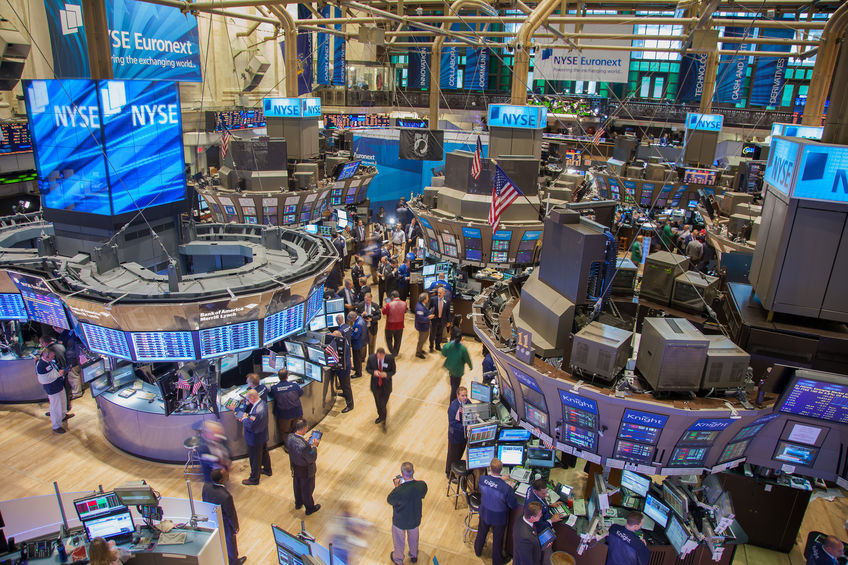 Amid the dramatic behavioral changes, the stock market registered several days of panic-selling in March, capped by a record, single-day plunge on March 16: The Dow Jones index plummeted 2,997 points, the third-worst percentage loss in history. After flirting with the level at which the Dow was reading on Inauguration Day Jan. 20, 2017, the market continued see-sawing this week, herky-jerkying between mini-rallies and skids.
Amid the dramatic behavioral changes, the stock market registered several days of panic-selling in March, capped by a record, single-day plunge on March 16: The Dow Jones index plummeted 2,997 points, the third-worst percentage loss in history. After flirting with the level at which the Dow was reading on Inauguration Day Jan. 20, 2017, the market continued see-sawing this week, herky-jerkying between mini-rallies and skids.
Hoping to prevent a coronavirus recession, the U.S. Senate adopted by an overwhelming, 90-8 bipartisan vote a $100 billion bill sent by the Democraticac-led House that expands free testing for the coronavirus, provides for paid sick leave and medical leave for some workers, and an emergency unemployment insurance and food assistance programs. The bill was signed late Wednesday night.
Meanwhile, Congress was taking up a monumental $1 trillion economic rescue plan proposed by the White House on St. Patrick’s Day (March 17) that included a bailout for the hotel and airline industries, help for small businesses, and $500 billion in direct cash payments to Americans households.
“We’re looking at sending checks to Americans immediately,” Treasury Secretary Steve Mnuchin said in a Rose Garden press conference at the White House on St. Patrick’s Day. By immediately, he added, “I’m talking about the next two weeks.”
The Trump Administration’s proposed help for small businesses has a strong supporter in Karen G. Mills, former SBA administrator and senior fellow at Harvard Business School. During her tenure in the Obama Administration, Mills was a troubleshooter in several crises including the Great Recession and Hurricane Sandy. “In a worst-case scenario with this virus contagion, getting loans to people through banks is not going to be fast enough,” she told deBanked just before the White House drew up its rescue plan. “They’ll need direct loans to people and other aid. If we lose our small business economy, it will be catastrophic.”
So how will the pandemic and the state of the economy play out politically in the November, 2020 general election between President Trump and former Vice President Joseph Biden, the presumptive Democratic nominee? The result remains shrouded in the fog of the future, of course, but the election’s contours are coming into focus.
Having seen him through numerous scandals, impeachment, and a trial in the U.S. Senate, Trump’s political and electoral following has been put to the test. Yet his backers remain unshakably loyal in a way not seen in 80 years, observed the University of Houston’s Murray. “More people are dug in now than at any time since the 1930s,” he says, as roughly 43% of the electorate is firmly lodged in Trump’s camp. “Trump’s support has been remarkably stable.”
The business community is a key demographic in the pro-Trump cohort, notes Ray Keating, chief economist at the Small Business & Entrepreneurship Council, a Washington, D.C. advocacy group claiming 100,000 members. “We have not polled our membership,” Keating says, “but when you look at the data they overwhelmingly vote Republican. We find that support for Donald Trump is clear and substantial.”
Richard Yukes, a Las Vegas-based oilman and longtime entrepreneur who votes his pocketbook, will be pulling the lever for Trump in the November election. The reason? Trump not only presided over a robust economy for the past several years, Yukes says, but the president slashed Obama-era regulations imposed on his industry. “Government regulation and bureaucratic regulation often get mishandled and misdirected by federal bureaucrats and Trump is for less regulation,” Yukes says. “I think America works best with less regulation.”
The owner and operator of oil wells in Wyoming, Yukes benefited handsomely last year when Trump’s Environmental Protection Agency relaxed rules governing methane leaks. The oilman reckons that complying with the regulations had been costing him an extra $1,500 per well each year.
No matter how well the economy has performed in the past three years, however, the pandemic economy promises to be a “game-changer,” says political scientist Murray, and history shows that voters are likely to take stern measure of the incumbent president’s performance during any a crisis.
Trump’s initial response to the coronavirus reminds Murray of Woodrow Wilson’s reaction to the Spanish Flu pandemic in 1918 while World War I was still raging. “As the U.S. was approaching climactic battles in Europe, President Wilson suppressed the news of the flu and the story didn’t get out though eventually people knew about it,” Murray says.
Wilson’s deceit hurt Democratic candidates who were battered in the 1918 midterm elections, just a few days before the November 11 armistice. Two years later, after Wilson had a stroke, the Democratic presidential candidate got crushed in the 1920 election by Warren G. Harding, a Republican senator from Ohio.
After war and influenza, Americans voted enthusiastically for Harding’s promise of “normalcy.”
Michael Bloomberg Says Democrats Off Limits From Investigations
December 7, 2019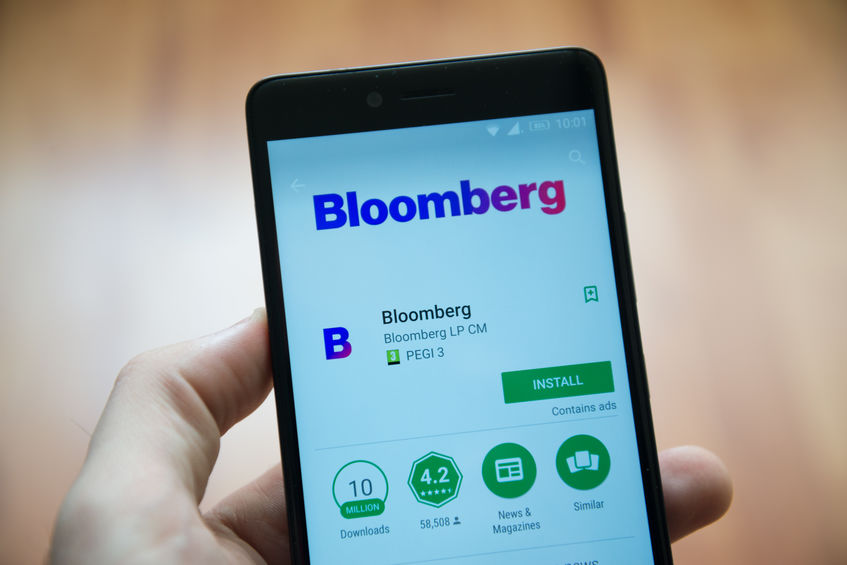 Suspect Bloomberg News might have a bias or an agenda? On Friday, Michael Bloomberg, whose company owns Bloomberg News, told CBS news that his reporters were restricted from investigating Democratic candidates while he runs for President.
Suspect Bloomberg News might have a bias or an agenda? On Friday, Michael Bloomberg, whose company owns Bloomberg News, told CBS news that his reporters were restricted from investigating Democratic candidates while he runs for President.
“We just have to learn to live with some things. [The reporters] get a paycheck. But with your paycheck comes some restrictions and responsibilities.”
CNN reported that inside the company reporters are frustrated by how difficult this will make their jobs.
Bloomberg is an influential player in politics.
As previously reported by deBanked last year, Bloomberg Senior Editor Robert Friedman thanked a state senator from New York on twitter for proposing legislation in response to a story he oversaw in 2018. When deBanked pointed it out, Friedman quickly deleted the tweet. The democrat-led legislature then went on to pass a law that relied almost entirely on the Bloomberg news story. That law was the restriction of entering Confessions of Judgment in New York against out-of-state debtors.
Bloomberg is Officially Running for President
November 25, 2019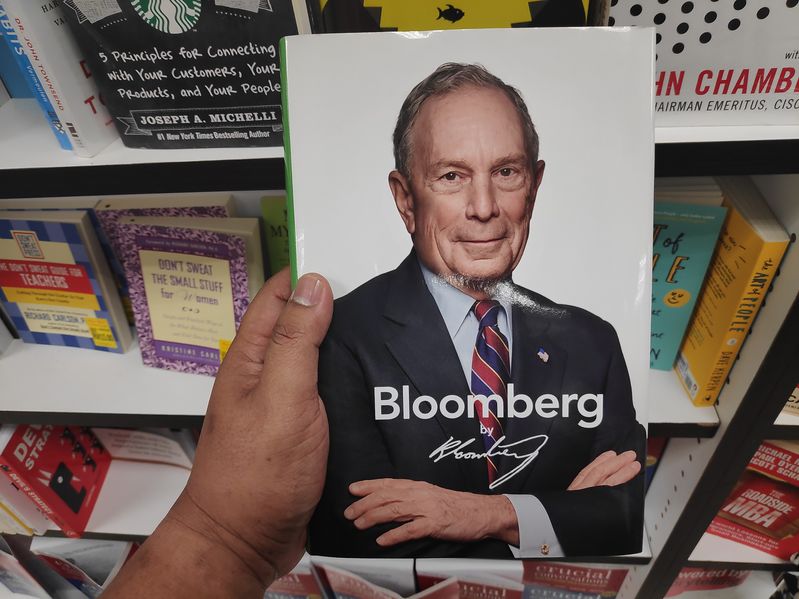 Former NYC Mayor Michael Bloomberg is officially running for President. He announced it over the weekend.
Former NYC Mayor Michael Bloomberg is officially running for President. He announced it over the weekend.
His campaign’s website paints him as a self-made entrepreneur who at 39-years old founded a company in a one-room office with the idea of turning a computer that connects users to a vast network of information and data. Today, Bloomberg LP employs more than 20,000 people and Bloomberg the individual is the 9th richest person on Earth (Forbes).
 His campaign’s website is light on the name Bloomberg and heavy on the name “Mike,” perhaps to cast him as the friendly hegemon next door. One page on his website refers to him as Mike 128 times while the word Bloomberg appears only 12 times and almost entirely in connection with things his businesses have done. Even his logo leads with a soft all-lowercase mike atop BLOOMBERG2020.
His campaign’s website is light on the name Bloomberg and heavy on the name “Mike,” perhaps to cast him as the friendly hegemon next door. One page on his website refers to him as Mike 128 times while the word Bloomberg appears only 12 times and almost entirely in connection with things his businesses have done. Even his logo leads with a soft all-lowercase mike atop BLOOMBERG2020.
Baby apparel for sale on his website goes even further to understate his power by simply stating m 2020.
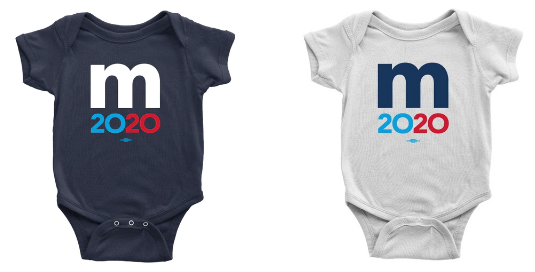
Democratic voters will now have to choose between frontrunners Joe Biden, Elizabeth Warren, Bernie Sanders, and this other dude named mike.
Sanders was quick to voice his displeasure with the new competition:
We do not believe that billionaires have the right to buy elections.
That is why multi-billionaires like Michael Bloomberg are not going to get very far in this election. pic.twitter.com/738Eg5ssLe
— Bernie Sanders (@BernieSanders) November 24, 2019
Trump Attacks Bitcoin and Cryptocurrencies
July 11, 2019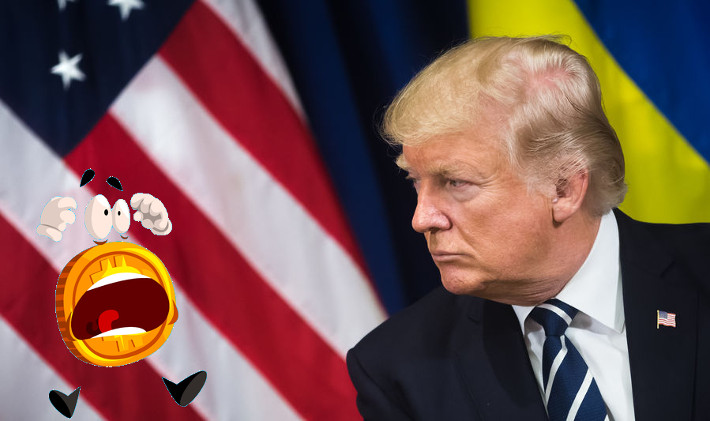
President Trump revealed his stance on cryptocurrencies over twitter on Thursday, and he’s no advocate.
“I am not a fan of Bitcoin and other Cryptocurrencies, which are not money, and whose value is highly volatile and based on thin air. Unregulated Crypto Assets can facilitate unlawful behavior, including drug trade and other illegal activity. Similarly, Facebook Libra’s “virtual currency” will have little standing or dependability. If Facebook and other companies want to become a bank, they must seek a new Banking Charter and become subject to all Banking Regulations, just like other Banks, both National and International. We have only one real currency in the USA, and it is stronger than ever, both dependable and reliable. It is by far the most dominant currency anywhere in the World, and it will always stay that way. It is called the United States Dollar!”
I am not a fan of Bitcoin and other Cryptocurrencies, which are not money, and whose value is highly volatile and based on thin air. Unregulated Crypto Assets can facilitate unlawful behavior, including drug trade and other illegal activity….
— Donald J. Trump (@realDonaldTrump) July 12, 2019
….Similarly, Facebook Libra’s “virtual currency” will have little standing or dependability. If Facebook and other companies want to become a bank, they must seek a new Banking Charter and become subject to all Banking Regulations, just like other Banks, both National…
— Donald J. Trump (@realDonaldTrump) July 12, 2019
…and International. We have only one real currency in the USA, and it is stronger than ever, both dependable and reliable. It is by far the most dominant currency anywhere in the World, and it will always stay that way. It is called the United States Dollar!
— Donald J. Trump (@realDonaldTrump) July 12, 2019
Former Mazuma Capital Board Member Considered as Supreme Court Justice
July 2, 2018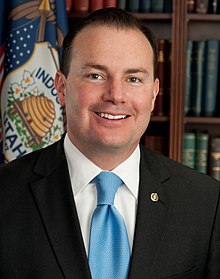 Senator Mike Lee of Utah, who had been on the board of directors of Mazuma Capital, is now being considered by President Trump to replace Justice Kennedy on the Supreme Court.
Senator Mike Lee of Utah, who had been on the board of directors of Mazuma Capital, is now being considered by President Trump to replace Justice Kennedy on the Supreme Court.
Mazuma Capital is an equipment leasing company that finances businesses in the energy, construction, healthcare and fitness industries, among others. In its more than 12 years in operation, it has funded transactions from $250,000 to $50 million.
Mazuma was acquired by Onset Financial in 2014 and is based in the Salt Lake City area.
Mayor Rahm Emanuel Cuts Ribbon for 160% APR Online Lender
October 11, 2017Chicago Mayor Rahm Emanuel cut the ceremonial ribbon at OppLoans’ new headquarters in Chicago this week. The APR of a typical installment loan is 160% APR in many states, according to the OppLoans website. In South Carolina, a typical loan is listed as 199% APR over 9-18 months.
Today we cut the ribbon on @OppLoans' new office in Chicago. pic.twitter.com/SAROJfCTcE
— Mayor Rahm Emanuel (@ChicagosMayor) October 9, 2017
According to a press release, Emanuel said “While for a lot of people outside this room, this may be the first time they’ve heard of OppLoans. There is no doubt in my mind this will not be the last time they’ve heard of OppLoans. I look forward to being back as you scale more mountains, more heights, and continue to grow and to be successful, and to offer financing to a lot of families.”
While OppLoans offers consumer loans, Emanuel has previously attacked small business finance products with lower costs than OppLoans as predatory. Perhaps he has reevaluated his understanding of APR.
Chicago Resumes Call for Protection of Small Business Owners Against Predatory Lenders
February 12, 2016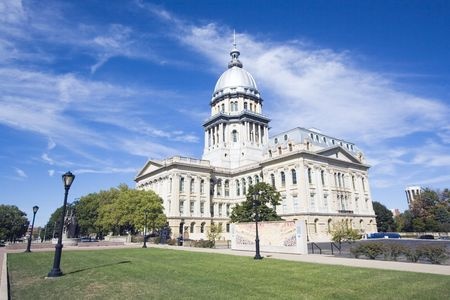 Chicago City Treasurer Kurt Summers has picked up where Rahm Emanuel left off a year ago. During a January 25th Illinois Senate Financial Institutions Committee hearing named, Small Businesses, lack of access to capital, and predatory lending practices, Summers called for new legislation to protect small business owners from misleading and dishonest predatory lenders.
Chicago City Treasurer Kurt Summers has picked up where Rahm Emanuel left off a year ago. During a January 25th Illinois Senate Financial Institutions Committee hearing named, Small Businesses, lack of access to capital, and predatory lending practices, Summers called for new legislation to protect small business owners from misleading and dishonest predatory lenders.
OnDeck we mean you
Spencer M. Cowan, Senior Vice President for Research, Woodstock Institute, also testified during the hearing and referenced OnDeck specifically. “The terms do not, without calculations that few people can make, let the borrower know that the loan will take a full year to repay with an effective interest rate of just under 70 percent,” he said. Cowan’s position was that banks need to lend more so that small businesses don’t need such alternatives. “If businesses do not have access to loans from banks, then they are probably going to resort to the same types of strategies as consumers who can’t get small loans from banks,” he said.
Cowan cited a report he prepared 18 months ago that examined the relationship between banks and the racial makeup of the small business owners they lend to. The sources he cited about alternative lending were blog posts written by industry critic Ami Kassar.
Treasurer Summers meanwhile recommended the following measures be included in draft legislation to protect small business owners:
- Require loan terms to be clear and unequivocal. Loan terms should be clearly stated using straightforward language and the interest rate should be clearly disclosed as an annualized interest rate or an annual percentage rate (APR).
- Loans should be free from traps. Borrowers should not be hit with new fees on existing principal if they refinance or modify a loan. Borrowers should not be charged interest or periodic costs for the remaining period of the loan if they pay it off early.
- Lenders should be required to display information about the results of their previous loans. This information could be anonymous and in the aggregate, but would give borrowers important data points as they determine whether or not to use a particular lender. If borrowers are able to see that a lender has a pattern of providing loans that are not paid back or have caused businesses to fail, they will be more likely to choose a more reputable lender.
- Conflicts of interest should be disclosed to borrowers. Borrowers should know what types of incentives are driving the lender and whether the broker will receive higher fees for using certain lenders or types of loans.
- Because many of these loans are made online, lenders must take substantial steps to protect the data privacy of loan applicants. Borrower data should not be allowed to be sent to third parties without the written consent of the borrower and lenders should be required to take steps to ensure that the data is encrypted and protected from breaches.
Unsurprisingly, the Illinois Bankers Association (IBA), who was not even invited to the hearing, felt compelled to issue a public statement. In a letter addressed to Chairperson Jacqueline Collins, the IBA was rather protective of their own interests. “We share the Committee’s concern with the proliferation of these under-regulated lenders, sometimes known as ‘fintech’ companies,” they stated. “This relatively new ‘shadow banking’ industry — unlike traditional financial institutions — is in many respects unregulated. Consequently, some bad actors are engaging in predatory lending practices with repayment terms that too often are forcing small business customers into cycles of debt.”
However they tapered down the rhetoric and made a technology-forward plea. “We do think it is important for lawmakers to preserve the benefits of lending innovations, and to ensure that mainstream financial institutions are not prevented from adopting technologies that result in better customer service,” they said. “For example, mobile lending interfaces and faster loan approvals, with appropriate safeguards, provide many potential benefits and match changing customer needs and expectations. We should seek to preserve these innovative solutions that benefit entrepreneurs and small businesses, while at the same time curbing abusive lending practices.”
A public digital transcript of the hearing is not currently available.
Former Bizfi Manager is Making a Splash in Delaware State Senate Contest
February 7, 2016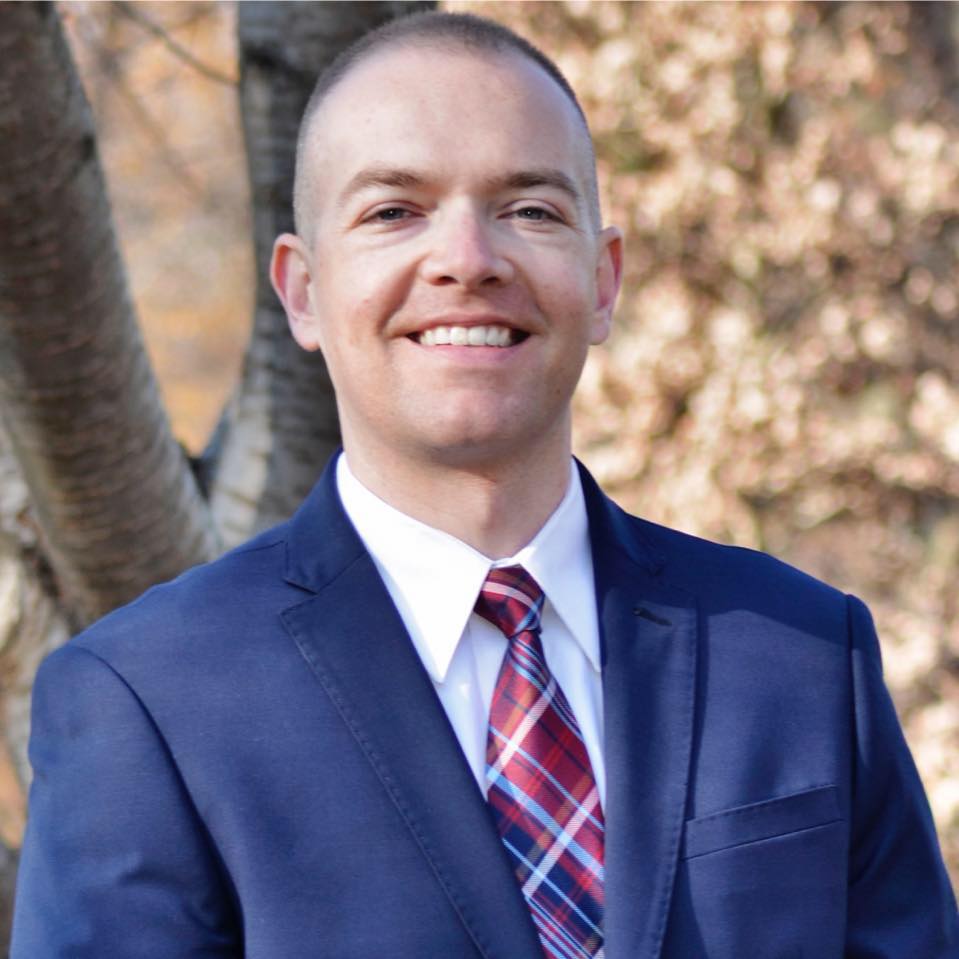 A former Bizfi manager is underwriting a new kind of 4-year deal. Thirty-two year old James Spadola, who lives in Wilmington, is bringing an impressive resumé to the Delaware state Senate contest for District 1.
A former Bizfi manager is underwriting a new kind of 4-year deal. Thirty-two year old James Spadola, who lives in Wilmington, is bringing an impressive resumé to the Delaware state Senate contest for District 1.
The world knows him as #HugACop after an outreach campaign he spearheaded for the Newark, Delaware police department went viral and inspired a new era of positive policing. Spadola has served as an officer there for more than 7 years.
He attended the University of Delaware, an experience that was interrupted when he was called up by the U.S. Army Reserve to take a tour of duty. Deployed in March 2003 for a year, he served as a prison guard and as his battalion commander’s gunner and driver in Iraq. He received the Combat Action Badge when his convoy was hit with an IED.
After returning home and graduating, Spadola moved to New York City and got a job at a hot new fintech startup named Merchant Cash and Capital (MCC). That was in February 2007, making him one of the company’s first ten employees. MCC Changed their name to Bizfi in September of 2015.
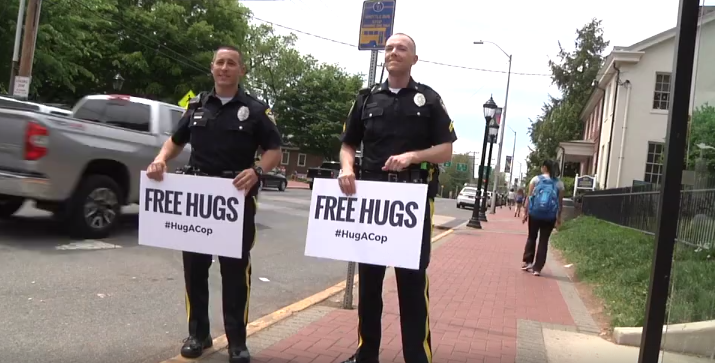
As an underwriter, Spadola was tasked with evaluating working capital applications submitted by small businesses. He was quickly promoted to Team Leader and later to Underwriting Manager, a senior departmental position.
Spadola told deBanked of his time there, “I had a great experience at Bizfi and learned an enormous amount about the private sector and the troubles and challenges that small business owners deal with everyday.”
Bizfi General Manager Seth Broman, said of him, “having worked closely with James for several years, it was apparent to me and all those around him that James has a knack for helping those in need.”
After almost two years there, he moved to Delaware to join the Newark Police Department, where he’s been ever since. He still managed to find the time to get his MBA from Wilmington University in 2014.
Today, Spadola is underwriting a new kind of challenge, competing against incumbent state legislator Harris McDowell who has been in office since 1976. Running as a Republican in a blue state, Spadola thinks it’s time for new blood.
“I look forward to putting those business lessons, coupled with what I’ve learned through my other professional experiences, into practical application down at Legislative Hall,” he told deBanked.
Visit his campaign Facebook page.
E-mail james@jamesspadola.com for further information.





























